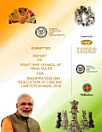Autonomy, Rationality, and Contemporary Bioethics
abr. del 2020 · Oxford University Press
Llibre electrònic
352
Pàgines
family_home
Apte
info
reportNo es verifiquen les puntuacions ni les ressenyes Més informació
Sobre aquest llibre
This is an open access title available under the terms of a CC BY-NC-ND 4.0 International licence. It is free to read at Oxford Scholarship Online and offered as a free PDF download from OUP and selected open access locations. Personal autonomy is often lauded as a key value in contemporary Western bioethics. Though the claim that there is an important relationship between autonomy and rationality is often treated as uncontroversial in this sphere, there is also considerable disagreement about how we should cash out the relationship. In particular, it is unclear whether a rationalist view of autonomy can be compatible with legal judgments that enshrine a patient's right to refuse medical treatment, regardless of whether the reasons underpinning the choice are known and rational, or indeed whether they even exist. Jonathan Pugh brings recent philosophical work on the nature of rationality to bear on the question of how we should understand personal autonomy in contemporary bioethics. In doing so, he develops a new framework for thinking about the concept of autonomy, one that is grounded in an understanding of the different roles that rational beliefs and rational desires have to play in it. Pugh's account allows for a deeper understanding of d the relationship between our freedom to act and our capacity to decide autonomously. His rationalist perspective is contrasted with other prominent accounts of autonomy in bioethics, and the revisionary implications it has for practical questions in biomedicine are also outlined.
Sobre l'autor
Jonathan Pugh is a Postdoctoral Research Fellow in Applied Moral Philosophy at the University of Oxford and Manager of the Visiting Programme for the Oxford Uehiro Centre for Practical Ethics. His research interests lie primarily in issues concerning personal autonomy in practical ethics, particularly topics pertaining to informed consent. He has also written on the ethics of human embryonic stem cell research, criminal justice, human enhancement, gene-editing, and neuroethics.
Puntua aquest llibre electrònic
Dona'ns la teva opinió.
Informació de lectura
Telèfons intel·ligents i tauletes
Instal·la l'aplicació Google Play Llibres per a Android i per a iPad i iPhone. Aquesta aplicació se sincronitza automàticament amb el compte i et permet llegir llibres en línia o sense connexió a qualsevol lloc.
Ordinadors portàtils i ordinadors de taula
Pots escoltar els audiollibres que has comprat a Google Play amb el navegador web de l'ordinador.
Lectors de llibres electrònics i altres dispositius
Per llegir en dispositius de tinta electrònica, com ara lectors de llibres electrònics Kobo, hauràs de baixar un fitxer i transferir-lo al dispositiu. Segueix les instruccions detallades del Centre d'ajuda per transferir els fitxers a lectors de llibres electrònics compatibles.







